Insights

17 Feb, 2026
Five Products: When World’s Collide. The Changing Face of Cleaning
Read More
Andrew Wardlaw
16 Jan, 2023 | 4 minutes
Latest data from MMR shows that the number of people claiming to be vegan across U.K and U.S remains tiny - at just 2% of the population. In China it’s 1%. So, what’s the point of Veganuary? The 2022 campaign recruited 620,000 people across 220 countries – but by my reckoning that’s less than 3000 people per nation. Which isn’t brilliant.
However, it not about recruitment. Veganuary has become an annual shot in the arm for more sustainable diets, an important catalyst for plant-based innovation. But as sales of plant-based meat alternatives start to fall in many key markets, 2023 feels like a defining moment.
So, in an attempt to boost momentum, many manufacturers are looking beyond core burger and sausage style formats and introducing added-value products where the ‘plant protein’ is less front of house.
A great example of added-value is this Korean Inspired Bowl from Wicked Kitchen.
Lockdowns have been good for frozen food, with many more shoppers now familiar with the high quality, good value category proposition. This product is an excellent vehicle for Beyond Meat to associate itself with a range of keenly priced and plant-forwards ready meals.
In this form, Beyond Meat is supporting taste discovery – which for many people is more motivating than meat substitution.
At a time when consumers might be shunning the comparatively higher prices of faux burgers and sausages, this kind of initiative provides Beyond Meat with an opportunity to build brand awareness and gain trial with new audiences who are either flexitarian or simply curious.
Over in the U.S, it’s worth noting that sales of plant-based frozen meals grew 5% in the second quarter of 2022 when other plant-based sectors experienced decline. Brands such as Strong Roots are working hard to accelerate this trend.
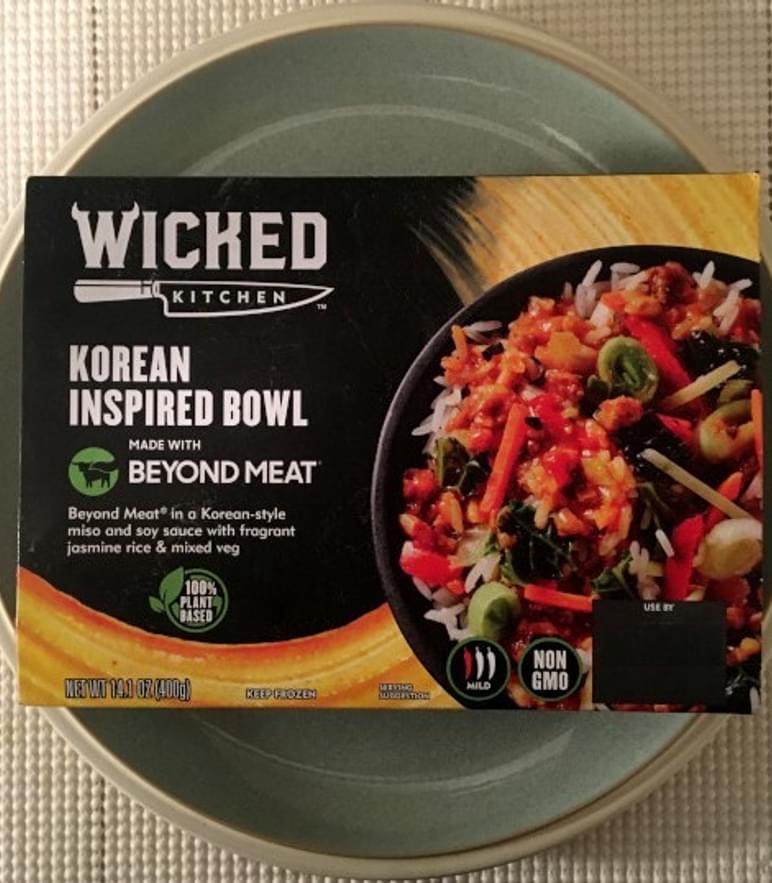
Lentils have an image problem. Doing something about it is this brand of instant lentils, with a range of flavors including Mexican Green Chile, French Mirepoix, Thai Coconut and Cinnamon Apple. Founders Ben and Brooke point out that lentils are high protein, high fiber, packed with a slew of micronutrients like potassium, iron and folate. The product takes seconds to prepare.
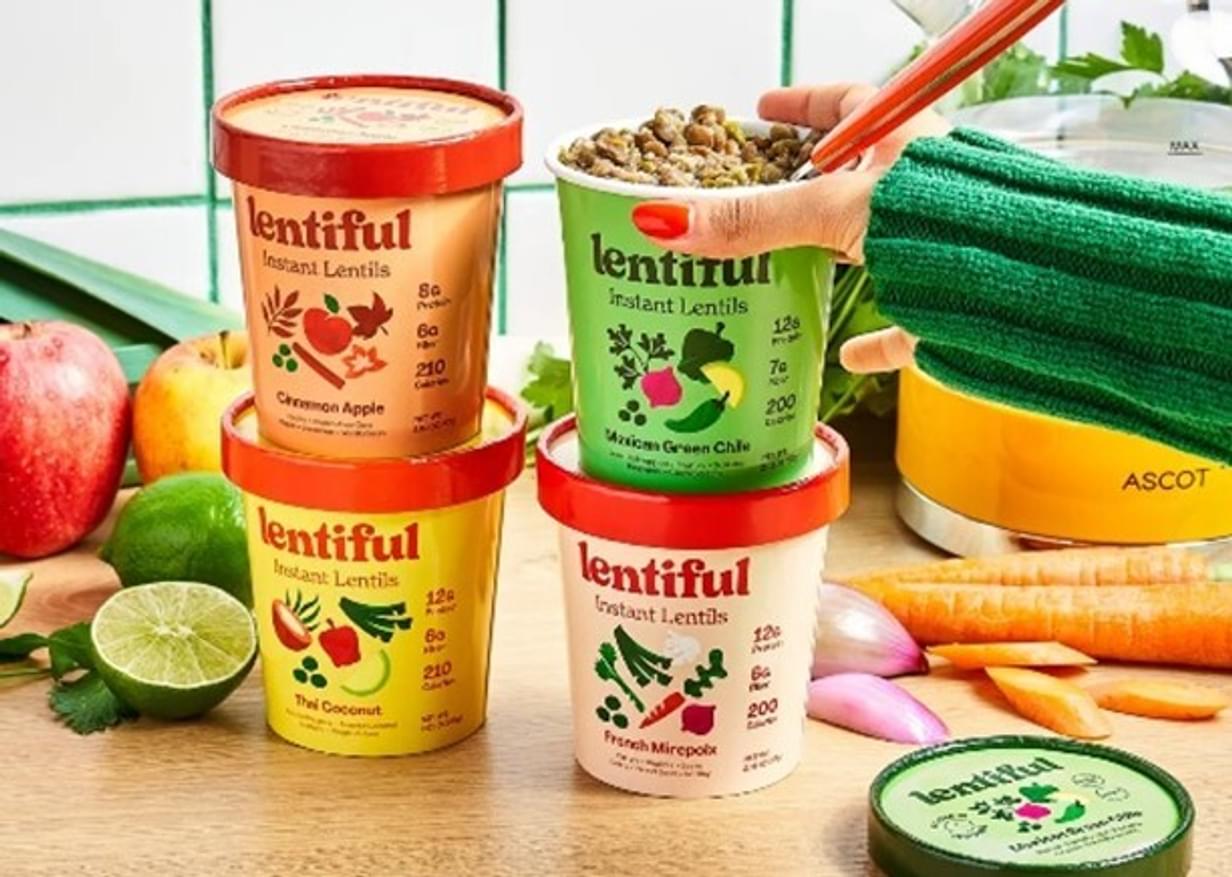
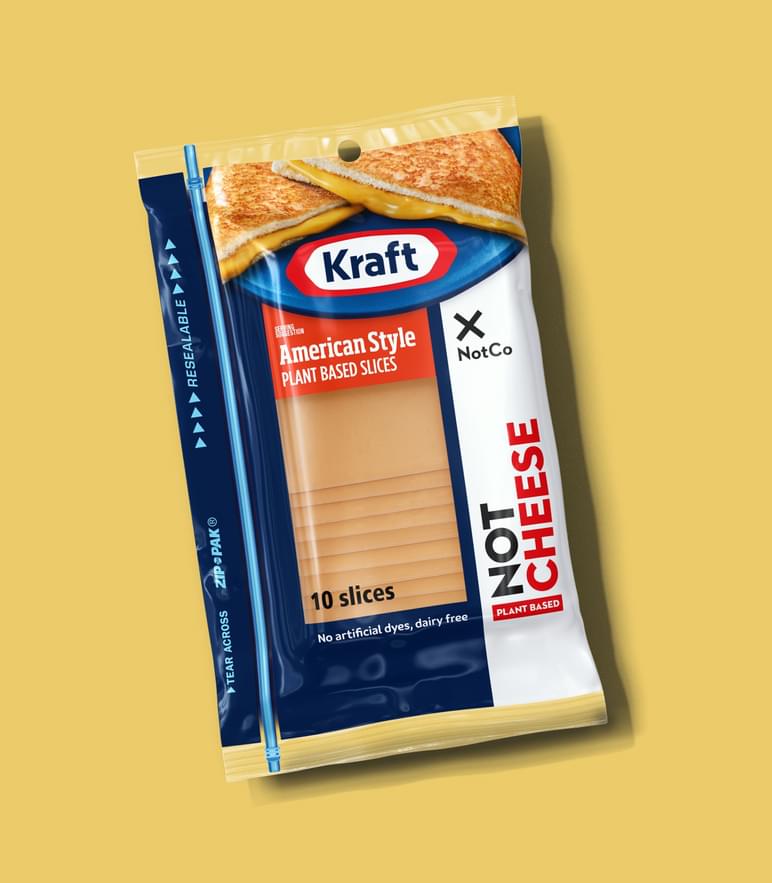
When speed to market is key, a joint-venture can be a smart move. In this case, U.S behemoth Kraft has partnered with Chilean food tech firm NotCo to perfect a range of dairy-free cheese slides. Kraft claims that the product tastes, smells and melts just like dairy cheese and is a formidable rival to Kraft’s own Dairy Cheese Singles.
NotCo is part of the food tech revolution and develops products with AI input. For example, its NotMilk product in Canada contains cabbage and pineapple extracts in its ingredient line-up to mimic the white stuff more accurately. Who knew?
Jooma is gaining a reputation for great tasting almond-based products in China. Following on from its award winning yogurts (see right), the company will be introducing an almond milk concentrate that allows consumers to make high-quality almond milk for any occasion, including warm almond milk — an important option in China.
In this concentrated form, the product does not contain oils, stabilizers, thickeners, preservatives, or emulsifiers – so it’s label is much cleaner!
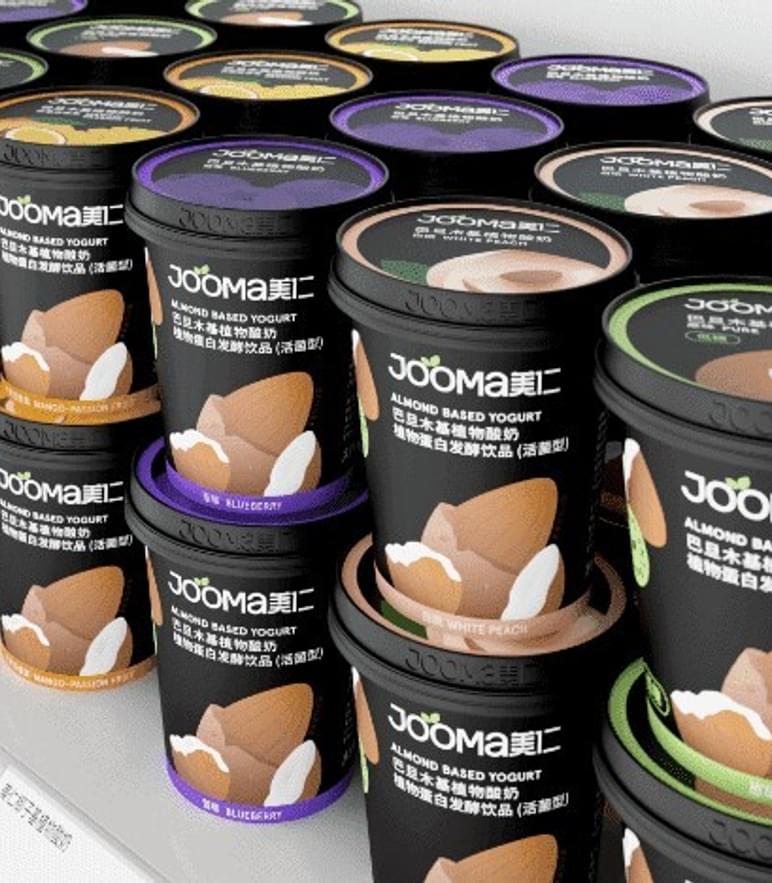
And concentrated product formulations also reduce the burden of transportation. It is simply more efficient for the consumer to add water at home rather than have manufacturers shipping bulk liquids around the planet. Other concentrated launches include this new Oat Milk Powder by Z Natural Foods in New Zealand and Planut Barista Base in U.S.
Plant-based ‘seafood’ is getting better – and is achieving that ‘juicy’ and ‘bouncy’ texture with mycelium, according to this German start-up. The company is cultivating fungi in a way that mimics seafood, and plans to launch mycelium-based alternatives to scallops and smoked salmon. Not only are they cheaper than the real thing, but they are free of ocean pollution – including microplastics.
This product still requires approval under Europe’s Novel Foods regulations, but could be available later this year.

Elsewhere in seafood alternatives, Verdino has added a large selection of ‘unfished’ vegan fish, including tuna and salmon poke cubes, sashimi, salmon fillets, and tuna flakes alongside their breaded offerings.
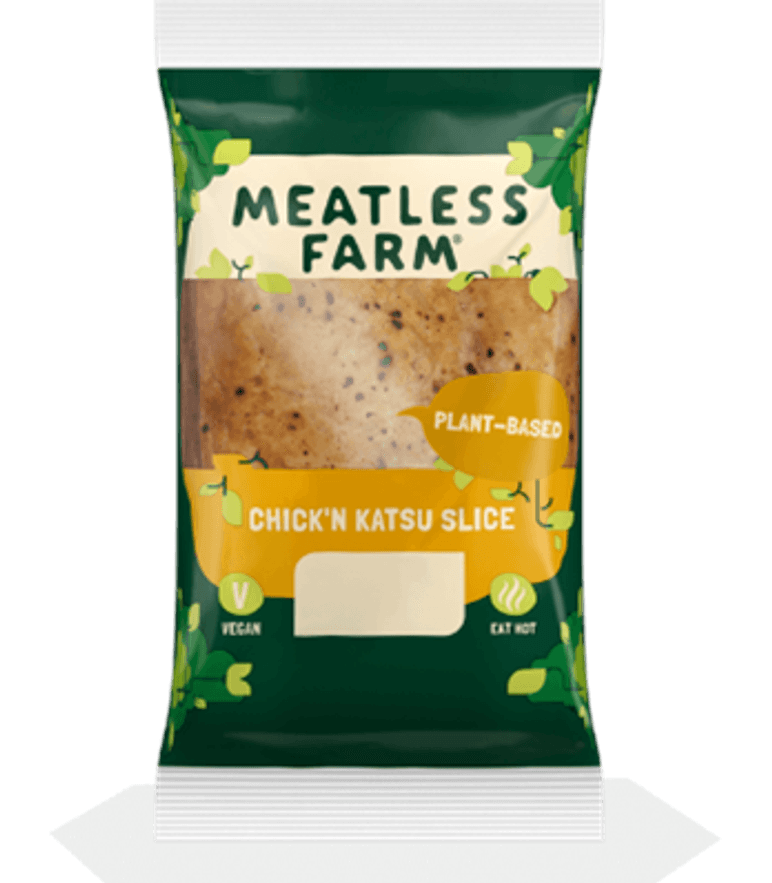
Pushing into food service, Meatless Farm has developed this spicy option for Sainsbury’s supermarkets in the U.K. Shoppers can order it from the retailer’s hot counters.
It’s a further example of how the plant-based movement is trying to expand its reach with people who aren’t yet ready to swap out their major protein choices.
Meanwhile in Spain, the company has branched out into ready meals by working with Uit De Keuken Van Maass to create a meatless meatball and pasta product.
And Stateside, the company has just launched two chilled ravioli products, one with roasted vegan chicken and garlic, and the other with meatless Italian sausage and garlic. For Meatless Farm, these launches have provided the company with entirely incremental space within the retail environment.
‘Much like cake mixes, shake mixes have also gone down the healthier route’ says thefoodpeople. Products supporting the needs of specific groups, such as younger children, are beginning to appear – like this new plant-based protein powder for kids from Healthy Heights.
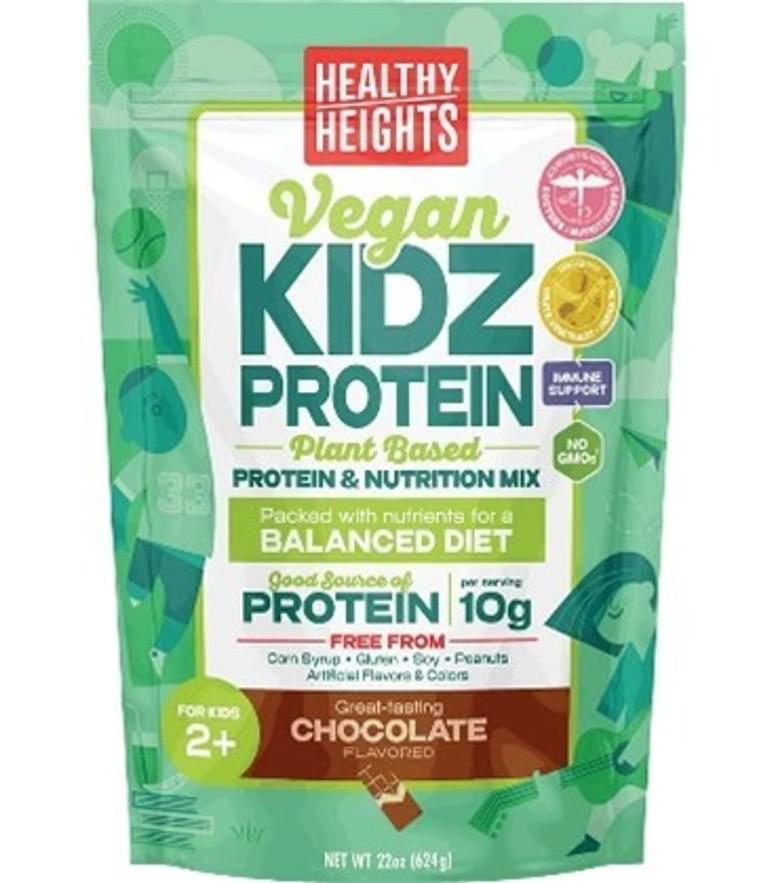
This Veganuary, retailers are confidently introducing own-brand propositions in an attempt to grab a higher share of this long term opportunity.
For example, in the U.K, ASDA has rolled out a colossal 86 new products under ‘Plant-Based’ and ‘OMV’ brand names. OMV products are billed as indulgent.
ASDA’s OMV range recognizes that many consumers need a little more persuasion to go plant-based, and offer more carrot, and less stick!
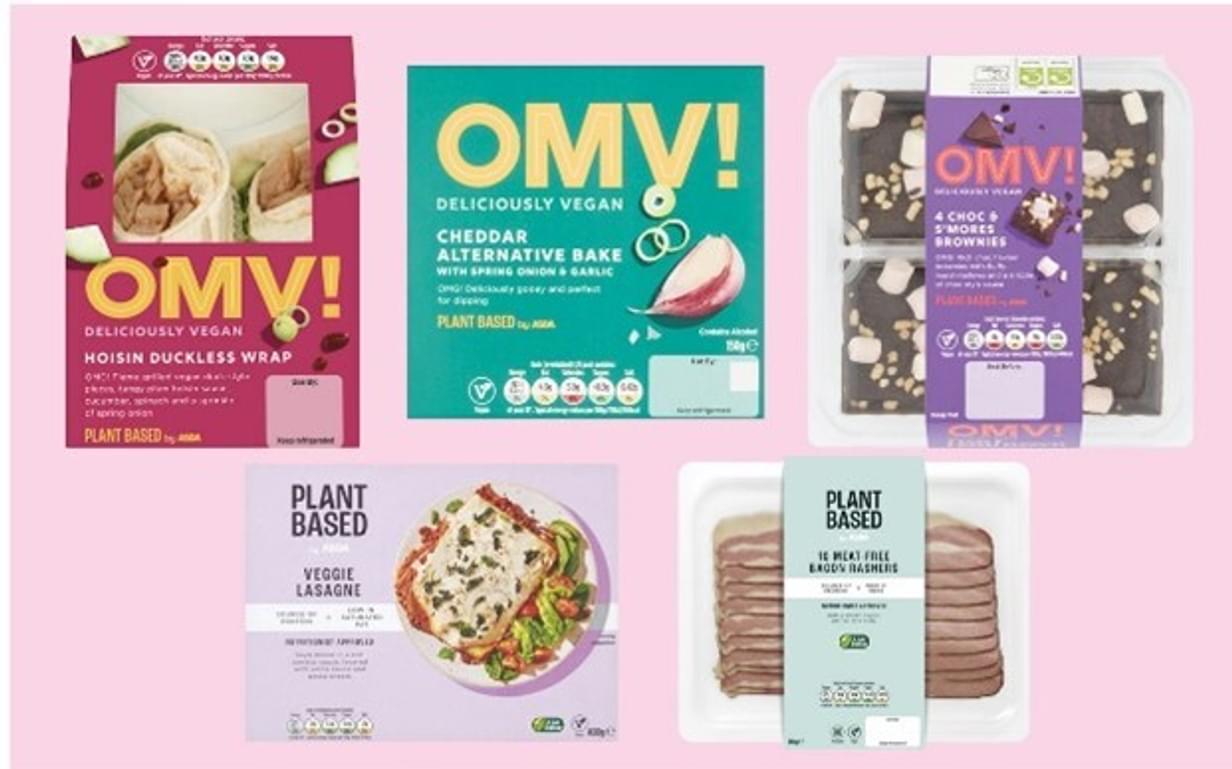
Who needs persuading to try a slice of this locally-made and hand-finished Hummingbird Gateau from Woolworths in South Africa?
According to Ingredion, 14% of global bakery launches in 2021 had a plant-based positioning – a figure that is set to be much higher in 2023.
But the truth is that many people do still need persuading! As recently as 2021, MINTEL found that just 21% of U.K consumers felt that vegan cakes sound appealing – a figure that is likely to be mirrored in many developed economies.
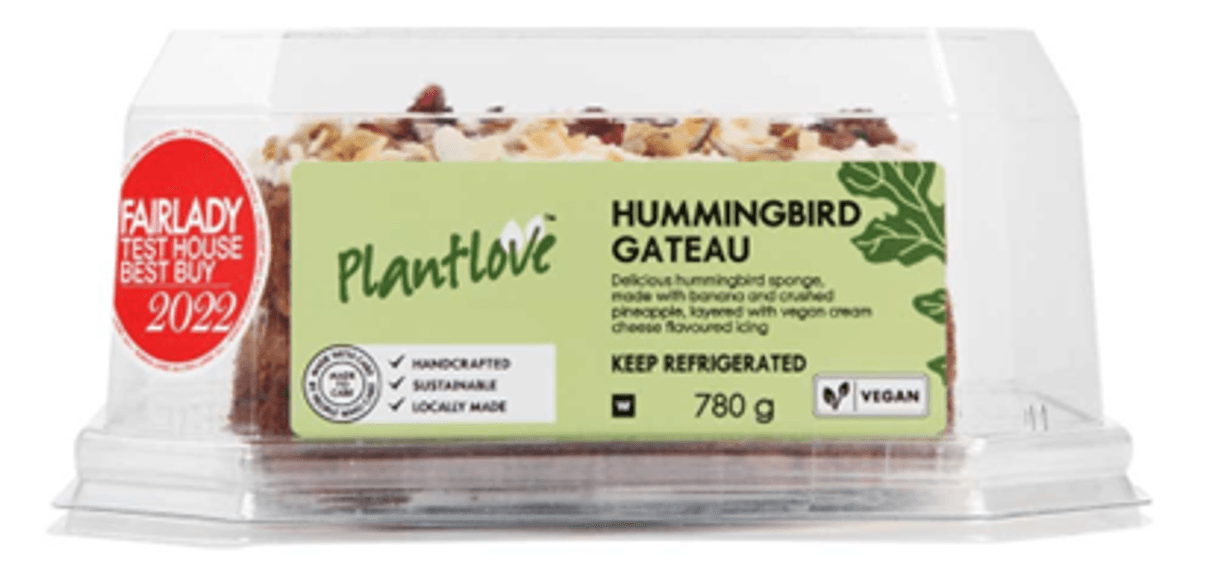
All of which brings me to my closing point. Whilst no one can dispute that Veganuary is a worthy cause, I question whether its framing is working sufficiently hard to speed up the adoption of more sustainable diets.
Studies show that the word ‘vegan’ is shunned by mainstream audiences. Some retailers have recently moved away from its use. U.S consumers generally favor the term ‘plant-based’ over ‘vegan’ - although this can vary by geography.
As we discovered in our Stardate 2030 research into future food tech, framing is everything. And right now the Veganuary frame feels a little too tight. So, full marks to the players featured here in making more sustainable diets more convenient, better value and more emotive. Because when money is tight, finding ways into people’s hearts is going to become increasingly important.